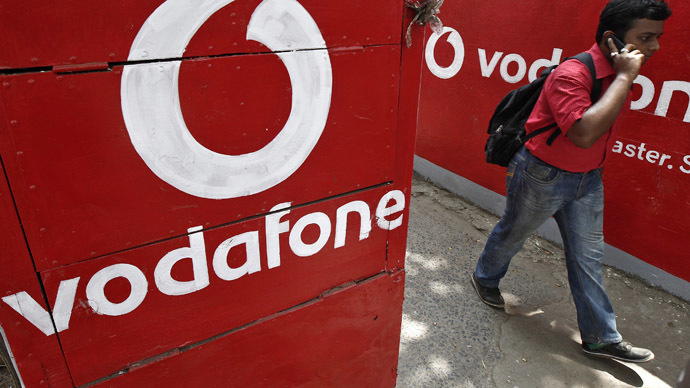Bird call: Falcons nesting in Vodafone masts ruin signal, provider warns

Vodafone has warned its customers of possible signal problems in the coming months as falcons have decided to build their nests in the firm’s masts. Faster service will only be achieved once the birds move on.
The falcons, ironically the world’s fastest birds, are set to slow down the provider’s mobile network, after occupying masts around London, their ideal nesting spot.
Customers will have to wait up to two months for the falcons’ chicks to hatch and take flight before regaining their standard service.
The mobile-phone giant is unable to remove the nests, as it’s a criminal offence to disturb birds while they are nesting under the Wildlife and Countryside Act of 1981.
If they were to disobey this law, the company could face a fine of up to £5,000 and offenders could face six months in prison.
There are 30 nesting pairs in Greater London, and six more birds have recently occupied nests in Hammersmith, Shadwell and Lewisham.
The falcon takeover will cause delays to service upgrades and customers may face disruption to their current network.
Reacting to the news on Twitter, an outraged user said: “The law is an ass” as “people are paying through the nose for 4G, can’t get a decent signal for months because of birds?!”
So Vodafone are having network issues in the area. Again. Clearly it's 'Revenge of the Falcon: The Sequel'...
— Aimee (@AimeeBatchelor) February 15, 2015
A dissatisfied user tweeted: “So Vodafone are having network issues in the area again,” sarcastically adding, “clearly it’s Revenge of the Falcon… The sequel.”
This isn’t the first time falcons have caused Vodafone users inconvenience.
Being forced to survive without mobile connection, one of modern life's essential crutches, due to a falcon. Grrr. http://t.co/eQKQS40K1T
— Andrew Power (@power_geog) May 20, 2013
@Northern_Claire It could be worse. Vodafone users in Southampton haven't had signal for months cos a peregrine falcon nested on the line.
— Mikey P (@mikeypowell) May 30, 2013
In April 2013, users complained about poor service in Southampton, where engineers discovered falcons nesting in the masts.
A frustrated customer tweeted at the time: “I cannot believe there’s some protected falcon nesting on the Vodafone masts,” even though she found the situation slightly amusing, she said “having no signal is not funny at all.”
CANNOT BELIEVE theres some protected falcon thing nesting on the vodafone mast in southampton, very funny! but no signal is not funny at all
— Nikita (@NikitaBailey_28) April 15, 2013
“I never get signal at uni, stupid Vodafone,” another Southampton student tweeted.
Simon Gordon, Senior Media Relations manager at Vodafone, told the Mail Online: “We apologize to any customers who experience a dip in service, but we have to respect the environment and the law.”
Calling the situation “unprecedented,” Gordon says, to his knowledge, it is the first time this has happened in London.
READ MORE: Govt watchdog rejects Snowden evidence of Big Telco-GCHQ human rights breach
“They can sometimes nest on the mast itself which is like a big metal climbing frame or use the box underneath where the computer stuff sits,” he told the paper.
He said Vodafone is inspecting individual sites to upgrade equipment as part of its 4G project.
Falcons nearly became extinct in the 1960s after their numbers were threatened by pesticides, but laws controlling the use of such chemicals meant the species slowly recovered.
Stuart Harrington, co-founder of London Peregrine Partnership told the Evening Standard: “There are more peregrine falcons in London than there are in more picturesque areas up north.
“London probably has the highest density of peregrine falcons in the UK, with many flying up from the south coast and settling here.”












